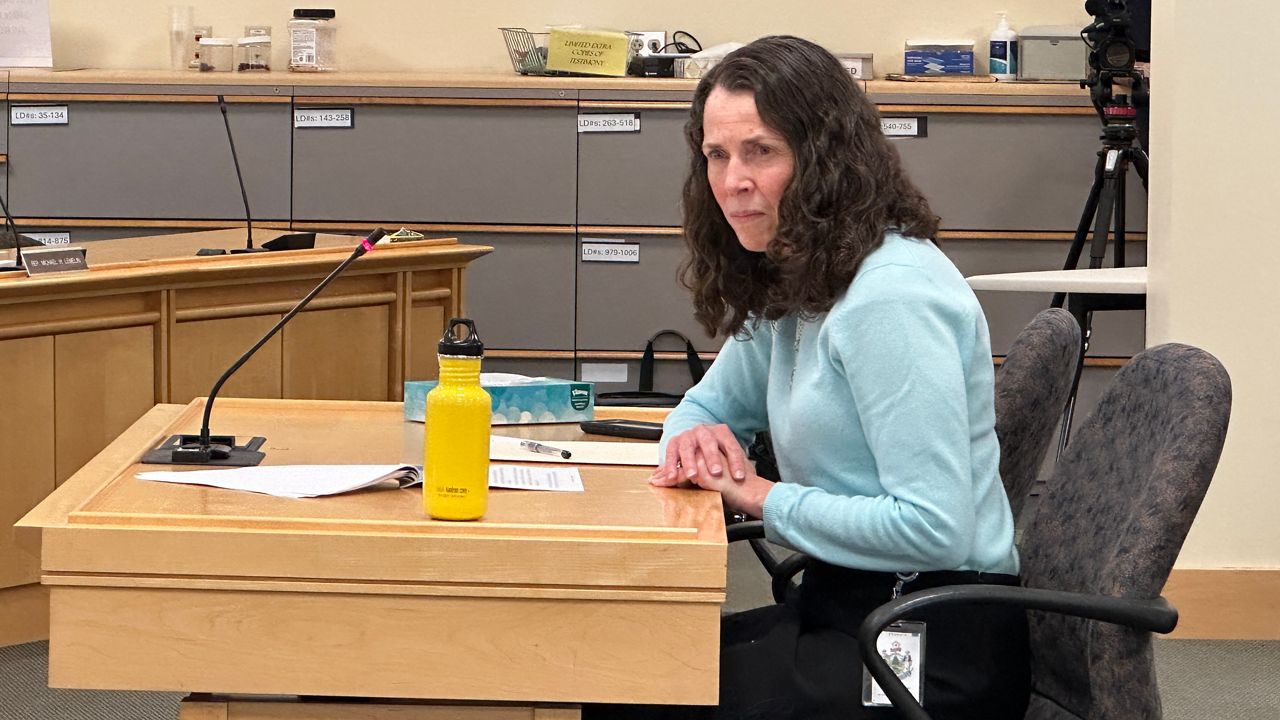AUGUSTA — The head of the Maine Department of Health and Human Services told lawmakers Friday that the cancelation of nearly $91 million in federal grants, combined with other potential cuts, is creating uncertainty about the future of some programs.
Commissioner Sara Gagne-Holmes said her staff is working to find ways to juggle existing resources to make up for the loss of federal funds.
But for some programs, such as community mental health, the impacts will likely be felt by those who need help the most.
“With the termination of this funding, the potential for early intervention is decreased, likely resulting in and escalating crises, increased law enforcement involvement, and more frequent and long inpatient hospitalization for affected persons,” she told members of the Legislature’s Health and Human Services Committee.
On March 24, the federal government told the state that four Maine Center for Disease Control and Prevention and two Office of Behavioral Health grants had been terminated. The grants funded 100 contracts with 70 vendors, resulting in layoffs of 40 contract workers, Gagne-Holmes said.
She said the grant cuts will compromise the state’s ability to respond to disease outbreaks and maintain vaccine availability and will undermine planned investments in mental health and substance use disorder services.
The funds followed the COVID-19 global pandemic and in many cases were meant to shore up public health gaps amplified by the crisis.
To explain the cuts, a federal DHHS spokesman said last month the government will “no longer waste billions of taxpayer dollars responding to a non-existent pandemic that Americans moved on from years ago.”
Across the country, the cuts total more than $11 billion.
Maine and several other states are suing the federal government over the cancelation of the grants.
In addition to the grant terminations, cuts to the federal health and human services department will mean the closure of the Boston office that Maine relies on to help implement programs, Gagne-Holmes said. The restructuring is intended to cut 20,000 jobs nationwide with the number of regional offices reduced from 10 to five.
Rep. Lucien Daigle (R-Fort Kent) said the federal government is dealing with a budget deficit, which will require states to adapt to changes.
“We’re certainly living in a new reality,” he said. “Essentially they were dispensing money or spending money they didn’t have.”
Gagne-Holmes said the department will continue to provide programs ensuring health, welfare and safety and that she’s willing to work with the new administration.
Another concern is at the state level, where Republican lawmakers have launched a people’s veto effort of the state budget. Gagne-Holmes said if the budget is put on hold in June, they will not have any money to pay hospitals and pharmacies for services provided through the Medicaid program.
The $11.3 billion, two-year budget includes $118 million to cover costs incurred by local hospitals, nursing homes and other providers. Democrats passed the budget without Republican support, prompting some GOP lawmakers to say they will attempt to gather more than 67,000 signatures to call for a public vote.
The department is already reducing payments to get by until the funds are released in June.
“If the budget is suspended because of the people’s veto, we won’t be able to make any payments to any provider in the state of Maine,” Gagne-Holmes said.
Committee chairwoman Rep. Michele Meyer (D-Eliot) said the uncertainty around all the rapid changes will impact the thousands of people who rely on DHHS for services and the state and contract workers who run the programs.
“This kind of uncertainty creates instability, creates an unsettling reality for Maine, for individuals, for 70 vendors,” she said. “Those are Maine workers. Those are families supporting themselves through the work of those contracts.”






)



